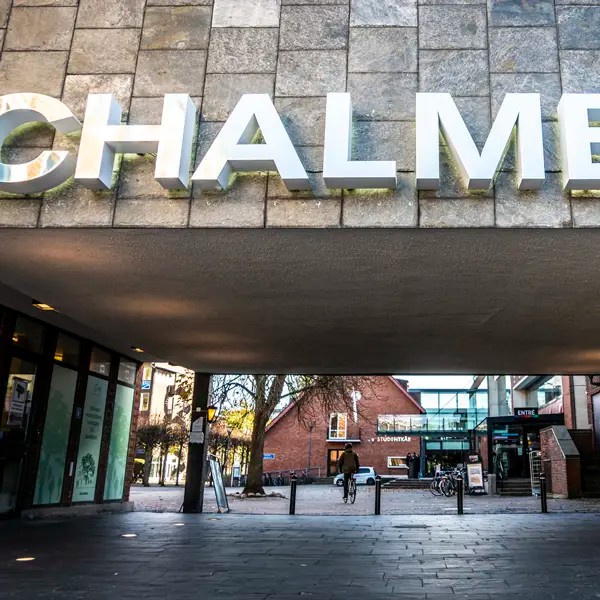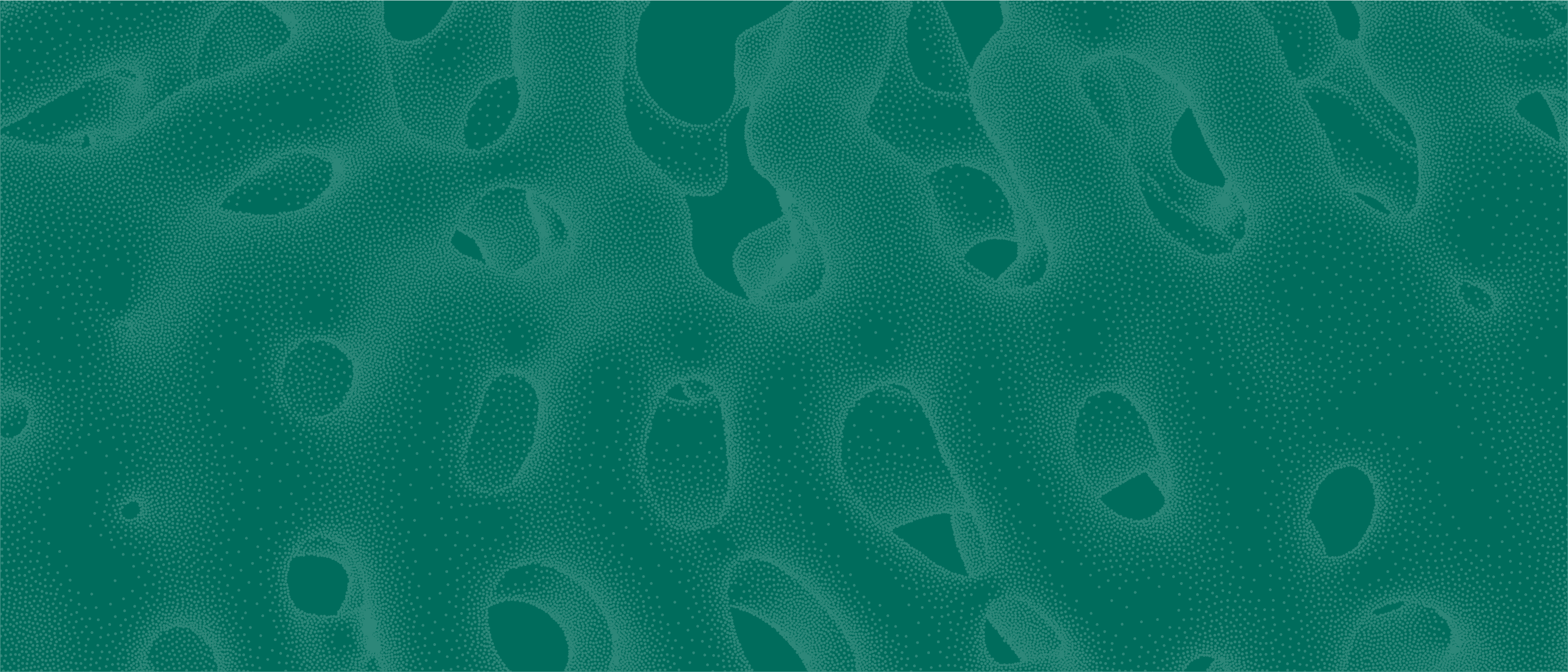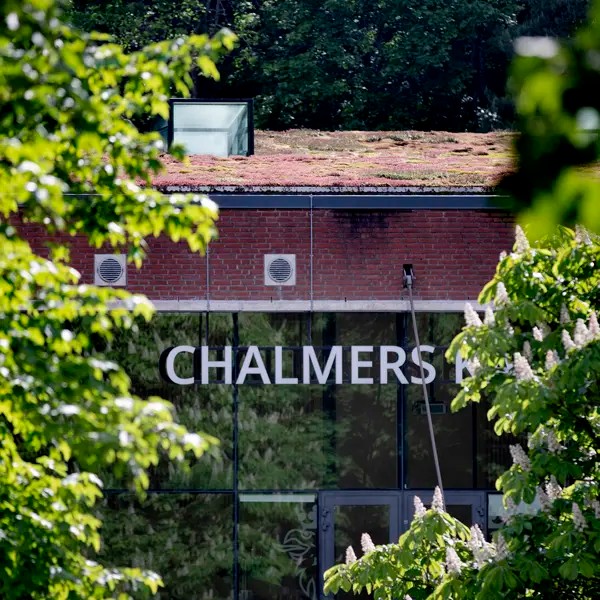Chalmers University of Technology has a wide range of researchers able and willing to contribute various aspects of our understanding of the coronavirus, Covid-19. The following is a selection of Chalmers researchers who may answer questions.
This list may be updated.
Virus experts
New research into and knowledge of RNA, the nucleus of the coronavirus
Marcus Wilhelmsson is Professor and Deputy Head of Division at the Department of Chemistry and Chemical Engineering.
Marcus Wilhelmsson is highly knowledgeable about how our cells are hijacked and controlled when we get infected with the coronavirus. The virus is a bag of RNA, the substance which takes over the mechanism of our cells to replicate itself and the envelope/bag which, with the RNA, constitutes the virus. So, the RNA is literally the nucleus of the coronavirus; the core of its evil. In his research, Marcus examines how RNA can be used in medical contexts and its structure and interactions with proteins/biomolecules.
In association with Fredrik Höök (Professor of Nano and Biophysics at the Department of Physics) and Elin Esbjörner-Winters (Associate Professor of Biology and Biological Engineering at the Department of Chemical Biology), Marcus also has a major project with AstraZeneca examining such things as introducing RNA into cells for (different) therapeutic ends. This somewhat resembles the proposed new type of vaccine currently being tested in the US. Should the American tests turn out well, any of these researchers would certainly be able to provide comments and clarification.
E-mail: marcus.wilhelmsson@chalmers.se, tel: +46 31 772 30 51
Viruses, cells and proteins
Pernilla Wittung-Stafshede is Professor of Chalmers’ Chemical Biology Division, at the Department of Biology and Biological Engineering and also head of Genie, a comprehensive new gender equality initiative at Chalmers.
Pernilla Wittung-Stafshede conducts research into the field of biochemistry/biophysics with a focus on proteins. She creates proteins in the lab and can thus vary them as necessary, depending on the scientific line of enquiry. The goal of her research is to understand the correct and incorrect function of proteins, focusing on (a) aberrant reactions which lead to amyloid diseases such as Alzheimer’s and Parkinson’s and (b) metal-binding proteins which drive the spread of cancer. Pernilla is a general expert on proteins and their functions and thus understands the proteins relating to the coronavirus. She also studies the binding of proteins to cell membranes, a part of the mechanism by which the coronavirus enters human cells.
E-mail: pernilla.wittung@chalmers.se, tel: +46 766 072283
Disease transmission and risks
Computational modelling
Devdatt Dubhashi, Professor of the Data Science and AI Division at the Department of Computer Science and Engineering.
Research areas: computational modelling, data-driven methods, aided by AI/machine learning.
E-mail: dubhashi@chalmers.se, tel: +46 31 772 1046
Population dynamics modelling
Philip Gerlee, Associate Professor of Mathematics at the Department of Mathematical Sciences.
Research areas: mathematical modelling, specific population dynamics models.
E-mail: gerlee@chalmers.se, tel: +46 31 772 5354
Global catastrophic risk
Olle Häggström, Professor of Mathematical Statistics at the Department of Mathematical Sciences.
Research areas: mathematical statistics, AI and global catastrophic risk.
E-mail: olleh@chalmers.se, tel: +46 731 431171
Mathematical modelling of disease transmission
Peter Jagers, Professor of Mathematical Statistics at the Department of Mathematical Sciences.
Research areas: Mathematical modelling of disease transmission.
E-mail: jagers@chalmers.se, tel: +46 31 772 3520
Extreme risks
Holger Rootzén, Professor of Mathematical Statistics at the Department of Mathematical Sciences.
Research areas: extreme storms, rain, flooding, financial risks, influenza epidemics.
E-mail: hrootzen@chalmers.se, tel: +46 730 794222
Healthcare
New research in the wake of the coronavirus
Martin Andersson, Professor of Chemistry and Chemical Engineering at the Department of Applied Surface Chemistry, Assistant Head of Department and head of optimisation for chemistry and chemical engineering.
Martin Andersson and his group are focusing on research into new materials which can be used in medical technology. They have expertise in surfaces and how they affect microorganisms, with a major focus on bacteria. A newly-started project is now underway, with the group studying how coronavirus can be immobilised on surfaces. This will help in assessing which materials might assist in reducing the spread of infection.
E-mail: martin.andersson@chalmers.se, tel: +46 31 772 2966
Development of targeted biological drugs and medical diagnostics
Fredrik Höök is Professor of Nano and Biophysics at the Department of Physics at Chalmers and head of Formulaex, an industrial research programme which has AstraZeneca as its leading industrial partner.
Fredrik conducts research into biological physics. The goal is to package biological drugs (such as vaccines) into nanocapsules so that they can reach the body’s cells and cure serious diseases. Fredrik also develops bioanalytical sensors in medical diagnostics, based on the detection of DNA, RNA and proteins.
E-mail: fredrik.hook@chalmers.se, tel: +46 31 772 6130
New technologies for disease monitoring
Francis Lee, Associate Professor and Researcher in Technology Management and Economics.
Research areas: how new monitoring technologies affect the way we understand and act on pandemics.
E-mail: francis@francislee.org, tel: +46 734 414219
Handling of contaminated (infectious) surfaces and clothing
New research - ways for healthcare professionals to practice safe handling of protective clothing/equipment.
Christian Ekberg, Professor. E-mail: che@chalmers.se, tel: +46 31 772 2801
Teodora Retegan, Associate Professor. E-mail: tretegan@chalmers.se, tel: +46 31 772 2881
Stellan Holgersson, Researcher. E-mail: stehol@chalmers.se, tel: +46 31 772 2802
Stefan Allard, Researcher. E-mail: stefan.allard@chalmers.se, tel: +46 31 772 2915
All the above researchers work in the field of nuclear chemistry/industrial material recycling and are knowledgeable in the correct handling of contaminated surfaces and clothing. This knowledge, which is the same as for dealing with droplet infection, is relevant in context of handling protective equipment and keeping healthcare personnel safe from the coronavirus. The unit/Chalmers could offer environments in which healthcare personnel can practice the safe handling (dressing and removing) of protective equipment, since knowledge and methods regarding contaminated surfaces already exist and can be transferred to the coronavirus. Their methods provide a direct answer as to whether the current strategy is working, or whether droplet infection has reached some unprotected part of the body. This type of training environment was offered to the Swedish Civil Contingencies Agency (MSB) during the Ebola outbreak.
Management of care organisations
Henrik Eriksson, Professor of Technology Management and Economics. with specialisms including quality improvement
Research areas: management and organisation of healthcare services.
E-mail: Henrik.eriksson@chalmers.se, tel: +46 31 772 8184
Remote working
Problems and opportunities of distance learning
Christian Stöhr is an Associate Professor at the Division of Engineering Education Research.
Research areas: based upon his research and expertise, Christian can answer questions about the problems and opportunities of distance learning.
E-mail: christian.stohr@chalmers.se, tel: +46 31 772 2448
Remote training of nuclear engineering specialists
Christophe Demazière is Professor of Subatomic, High-Energy and Plasma Physics at the Department of Physics and head of a new, EU-funded training initiative. The project is based on the utilisation of distance learning to train a new generation of sought-after researchers and specialists within nuclear technology.
Research areas: reactor physics. Christophe has successfully taught remotely for many years. Amongst other things, since 2013 he has given a course in advanced physics entirely online. He has also developed interactive workshops in which students can participate remotely. He lectures regularly in innovative educational methods, such as flipped classrooms and active learning. In developing and analysing his educational methods, Christophe also collaborates with two educational researchers at the Department for Communication and Learning in Science at Chalmers.
E-mail: demaz@chalmers.se, tel: +46 31 772 3082
Ergonomics of home-working
Anna-Lisa Osvalder is Professor of the Division of Design & Human Factors at the Department of Industrial and Materials Science, Associate Professor of Human Factors Engineering and Senior Lecturer in Ergonomics. She holds a PhD in Traffic Safety, specialising in biomechanics and injury prevention.
Anna-Lisa’s research into human-machine systems focuses on how products and technological systems should be developed, designed and used to achieve efficiency, safety and well-being within the system. The physical, cognitive and psychosocial abilities and limitations of different user groups are factored into the evaluation of comfort, usability, risk and safety.
E-mail: anna-lisa.osvalder@chalmers.se, tel: +46 31 772 3643
Supply chains
How fast can you change a manufacturing industry and is it even possible?
Johan Stahre is Chair Professor and Head of Division Production Systems at the Department of Industrial and Materials Science. He is Chair of the national Production Research and Innovation Council and Secretary of the Swedish Production Academy.
Johan’s research deals with production, automation and human factors. He has led several national and international projects in social sustainability, levels of automation and human supervisory control of production. He is the national academic contact for ManuFuture and Chalmers representative in the European research organisation, Factories of the Future.
E-mail: johan.stahre@chalmers.se, tel: +46 31 772 1288
Consequences of disruptions in logistics services for household waste and packaging
Anna Norinder is a Doctoral student in Service Management and Logistics at the Department of Technology Management and Economics.
Research related to logistics services, operators and their relationships with reference to household waste collections of various kinds. A mixture of municipal and private operators are involved in the various waste fractions and disturbances to any of them would rapidly affect all households. Waste collection is listed as an essential service.
E-mail: anna.norinder@chalmers.se, tel: +46 738 564916
Causes of disruptions to the supply chain and their consequences
Árni Halldórsson Árni Halldórsson is Professor of Supply Chain Management at the Department of Technology Management & Economics.
Root causes of and consequences of manufacturing and service supply chain disruptions. Sustainable supply, logistics services and buyer-supplier relationships, including supply chain risk and disruptions.
E-mail: arni@chalmers.se, tel: +46 31 772 1582
Accessibility to goods via home deliveries
Ivan Sanchez-Diaz is Associate Professor in Service Management and Logistics
Research into urban logistics. As physical distancing becomes imminent as we face the pandemic, access to food and medicines via home deliveries becomes crucial to the vulnerable population.
E-mail: ivan.sanchez@chalmers.se, tel: +46 721 585593
Infrastructure and IT
Design and optimisation of infrastructure for Internet communication
Paolo Monti is Professor and Head of the unit Optical Networks at the Department of Electrical Engineering.
Research areas: optical networks and how the infrastructure of our online society can be designed, optimised and used to give us access to rapid, reliable and energy-efficient high-performance communication solutions. This field is relevant since the coronavirus pandemic has made us largely communicate with each other remotely; at work, in the educational field and to maintain our social relationships.
E-mail: mpaolo@chalmers.se, tel: +46 31 772 6027 (speaks English).
Innovation
How intellectual property rights can help and hinder finding solutions to the pandemic
Marcus Holgersson is Associate Professor in Technology Management and Economics at the Entrepreneurship and Strategy Division and Senior Lecturer in intellectual property management.
Marcus conducts research into how intellectual property and intellectual property rights are managed and used to contribute to innovation and technological development; often when major collaboration and transnational innovation is required, as with Covid-19.
E-mail: marhol@chalmers.se, tel: +46 739 431121
Organisational change
Kamilla Kohn Rådberg is a Researcher in the Department of Technology Management and Economics and conducts research into innovation management.
Research areas: how to organise for increased innovation and change for, and within, established organisations, based upon management and different forms of social perspectives, plus the role of management in developing organisational innovative capacity.
E-mail: kamilla@chalmers.se, tel: +46 31 771 1199, or +46 761 356434
Increased speed for digital business models and digital innovation
Charlotta Kronblad is a Doctoral Student at the Department of Entrepreneurship and Strategy.
Research areas: research into the legal system/courts, legal/law firms and other professional service firms. With increased restrictions on mobility, we are seeing a rapid shift towards digital business models and digital innovation, such as virtual courtrooms and automated decision-making.
E-mail: chakro@chalmers.se, tel: +46(0)738 511275, +46 735 353124
Environmental and climatic impact
Reorientation of production and consumption towards sustainability
Björn Sandén is a Professor of Innovation and Sustainability and Head of the Division of Environmental Systems Analysis in the Department of Technology Management and Economics.
Research areas: the current crisis may open the way to more rapid structural transformations towards more sustainable production and consumption but it also poses the risk of social transformation proceeding more slowly or taking the wrong direction. I research into sustainability transformations.
E-mail: bjorn.sanden@chalmers.se, tel: +46 730 794374
How do we see climate change before, during and after the crisis?
Martin Hultman is Associate professor in Science, Technology and Environmental Studies at the Department of Technology Management and Economics.
Research into such things as climate change denial and how the rise of right-wing nationalism is associated with it. Will things be better or worse when we emerge from the crisis?
See: https://www.gp.se/nyheter/v%C3%A4rlden/milj%C3%B6n-stor-vinnare-i-coronapandemins-fotsp%C3%A5r-1.25990165
E-mail: martin.hultman@chalmers.se, tel: +46 31 772 6378
Coronavirus and the climate
Tomas Kåberger is Co-Director of the Energy Area of Advance and Affiliated Professor of Environmental Systems Analysis/Technology Management and Economics. He works with Chalmers’ industrial partnerships in the field of energy.
His research deals with the development of energy technology and market conditions. Tomas is also The Senior Strategic Adviser for Chalmers’ Energy Area of Advance and a member of the Swedish Climate Policy Council.
E-mail: tomas.kaberger@chalmers.se
What will happen to the way we take holidays?
Jörgen Larsson is Assistant Professor in the Division of Physical Resource Theory at the Department of Space, Earth and Environment.
“During the financial crisis, aviation reduced significantly. However, this was merely a brief dip in the curve and thereafter, aviation increased strongly each year. Things may not be quite the same this time, as we are heading into a global recession and increasing numbers of people are limiting their flying for climate reasons.”
E-mail: jorgen.larsson@chalmers.se, tel: +46 31 772 3108
Impact on housing and homelessness
Jaan-Henrik Kain is Professor of Architecture and Civil Engineering in the Division of Urban Design and Planning at the Department of Architecture and Civil Engineering.
E-mail: kain@chalmers.se, tel: +46 31 772 8085
Ola Nylander is Professor of Building Design at the Department of Architecture and Civil Engineering.
E-mail: ola.nylander@chalmers.se, tel: +46 31 772 2225
Jenny Stenberg is Associate Professor of Architectural Theory and Methods at the Department of Architecture and Civil Engineering.
E-mail: jenny.stenberg@chalmers.se, tel: +46 31 772 2346


